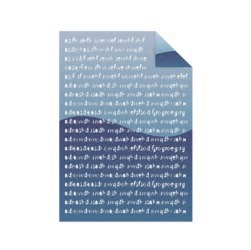You are free to:
- Use and reproduce the work for your own purposes
- Modify the work and adapt it into your own projects
- Distribute the work and share it with others
Your freedoms under this license apply to all copyright that vests in the work. However, you still must ensure that you do not infringe any:
- Trade-marks
- Patents
- Neighbouring rights (ie. rights in a sound recording or performance)
- Database rights (where applicable under European law)
- Moral rights
You may use the work and modify it without sharing your changes, as long as this is sole for your personal use. However, to promote a community of open sharing, you must license your changes to others under the same terms as the original if you:
- Distribute or publicly communicate your modified version to anyone else, whether for free or for profit
This copyleft obligation applies to:
- Any adaptation or derivative work you create based on the original
but does NOT apply to:
- Any compilation or larger project, as long as it merely includes the whole of the unchanged original work
The licensor makes no guarantee to you as to:
- The quality of the work. Keep in mind that the work may contain inaccuracies and errors. It may be entirely unsuitable for your purpose.
- The clearance of rights. It is possible that the licensor might not actually own all of the rights that the license claims to grant. If this is the case, you could inadvertently infringe the copyright of a third party -- and you will bear the full responsibility of this infringement.
The license also contains a general disclaimer of liability. In most cases, you cannot sue the licensor, even if you suffer injuries or financial harm due to errors, inaccuracies, or faults on the part of the licensor.
You must additionally indemnify the licensor for lawsuits that relate to your use of the work. That is, in certain cases, if someone else sues the licensor, it's you who must pay for all of the licensor's legal costs and any damages (even if the licensor is at fault).
If the licensor updates or makes any changes to the license, you are immediately bound by the new terms. You cannot keep using work under the previous license.
If a legal dispute arises between you and the licensor, it must be heard by a court at the specific location named in the license (usually within the jurisdiction of the original licensor). If this differs from your own location, any lawsuit may be more costly for you to launch or defend.
To resolve any such legal disputes, courts will interpret the license based on the laws in force at the specific location named in the license.





